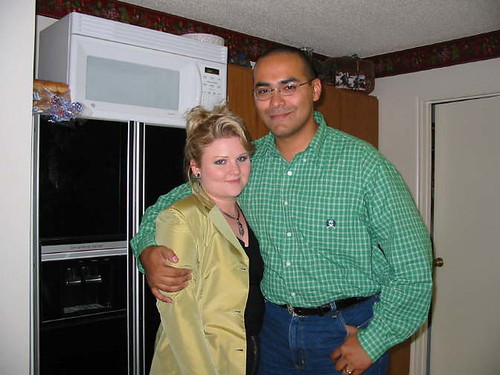Every couple has issues, no matter how it looks from the outside.

True love is not always roses and chocolates. In fact, it can get messy and complicated. Giving up fairytale notions, however, means you won’t be constantly dismayed when love’s inevitable reality shows itself to be different than your internalized fantasy. For example, consider these 5 myths about happy couples:
Myth: Happy couples want to have sex all of the time.
Fact: They don’t want to have sex all of the time, but they do gear up for sex.
The reality is that the very hot feelings early on in a romance eventually wane, simply because familiarity creeps in. It’s inevitable that your partner won’t seem as new and exciting to you at some point. This means you are likely not going to constantly desire sex, like you may have early on. What it doesn’t mean is that you stop having sex and that you don’t still have exciting, sexually-charged moments together. Healthy couples work to have sex, even when the initial desire is absent. Gearing up and having sex keeps couples connected in more ways than merely interacting around the chores, plans, and logistics of life. But quality is what’s important—not quantity. You don’t need to have sex all of the time to have a healthy relationship. Feeling burdened by your partner’s sexual demands is also problematic. Healthy couples keep a good balanced sex life where quality and mutuality trumps frequency.
Myth: Happy couples don’t fight.
Fact: They fight, but they also forgive.
So often we hear popular wisdom espouse that couples should “never go to bed angry," and seemingly happy couples like to boast, "We never fight!" Yet, I can’t tell you how often I’ve heard a teenager say how confused they are because their divorcing parents never fought. Arguing and conflict are normal parts of intimate relationships. If it never happens in your union, then you are not two separate, self-actuating beings and you may eventually find that one of you becomes claustrophobic in the relationship. Happy couples fight, but they stay happy by using tools to work through their conflicts. Most important, they have well-tuned abilities to soothe each other and make each other feel better and secure.
Myth: Happy couples tell each other everything and enjoy doing the same things.
Fact: Happy couples have a separate life, outside of their relationship.
It’s an absolute myth that happy couples share every detail of their existence and do all of the same activities together. In fact, sharing everything can lead to less intimacy; you may begin to feel like your partner’s therapist and not their lover. Or if you do everything together, you can start to feel as if your partner is an extension of you, not a separate person. Happy couples have multiple ways to feel supported and enjoy their lives. They may not enjoy the same specific interests and activities, but they do agree to try new things together. They indulge each other’s interests and, at the same time, support each other in pursuing their own separate goals. Even if it’s not a traditional hobby, happy couples have tried-and-true ways of enjoying time together and laughing: It could be something as simple as just watching reality TV on the couch.
Myth: Happy couples love unconditionally.
Fact: Tension and challenge are always present.
Happy couples are not complacent couples. They don’t always say, “I love everything about you and I love everything you do!” There’s tension between fully accepting your partner as is, but allowing for growth and change. What is life without growth and change? For happy couples, the tension between these polarities means unconditional love is not always possible. At the same time, the tension between what we are and what we are becoming means the relationship remains vital not stagnant.
Myth: Happy couples are entirely emotionally healthy.
Fact: Everyone has issues.
So often I talk to people in my practice who say they feel “crazy” or “weird’ because of whatever issue they are facing. I have come to see that most people struggle with something. The question is, Are you aware of what you struggle with? Can you acknowledge it to yourself and to your partner, and can they do the same? Happy couples recognize their own shortcomings and can even laugh about their foibles from time to time. If a member of the relationship has no ability to admit fault, apologize, forgive, or hold themselves accountable, that is when relationships become stuck and eventually toxic.
If you find yourself often frustrated that your relationship isn’t closer to “perfect” or that you and your partner are not more enamored by one another and cherishing of your time together, consider that your relationship might be more “normal” than you recognize.


No comments:
Post a Comment